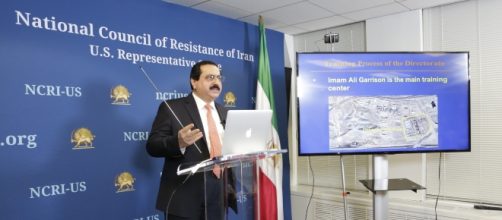Is the Iranian Revolutionary Guard Corps (IRGC) recruiting and supporting terrorists and separatists across the Middle East, and possibly even the world? Many international experts believe so. The IRGC is Iran’s elite armed services and consists of the soldiers most loyal to the Iranian regime. Under “moderate” President Hassan Rouhani, the IRGC has only expanded in power, size, and funding, with 60% of military appropriations now allocated to the hard-lined military branch.
At a press conference hosted by the National Council of Resistance of Iran (NCRI), Alireza Jafarzadeh alleged that the IRGC has set up training camps to train foreign nationals from Afghanistan and elsewhere to fight for Iran and its interests.
The NCRI alleges that these troops are being used to support the Assad regime in Syria.
IRGC and its terrorist wing
Officially, any outside-of-Iran activities are supposed to be conducted by the Quds Force, a paramilitary group directly operated by the Revolutionary Guard. Quds is one of the five branches of the IRGC. Quds is also considered a Foreign Terrorist Organization (FTO) by the United States government and numerous other authorities.
The organization is believed to be supporting Shia terrorist organizations and separatists in Iraq, Yemen, Lebanon, and elsewhere. FTO designations are important because they allow authorities to freeze assets and take other measures to block groups and reduce their ability to operate.
Should IRGC be designated as a Terrorist Organization?
Currently, the IRGC as a whole is not designated as an FTO, but many now believe that the organization should be. Alireza Jafarzadeh, who is deputy director of the NCRI, argues that that the distinction between the Quds wing and the parent IRGC is false and is unsupported by the content of Iran’s constitution, as well as the national budget.
The NCRI, among others, are now urging President Trump to label the Revolutionary Guard as a terrorist organization. So far, Trump has been rather mum on Iran, dealing with internal strife, alleged Russian influence, and other issues. However, Iran and the instability in the Middle East remains among the most pressing geopolitical issues.

